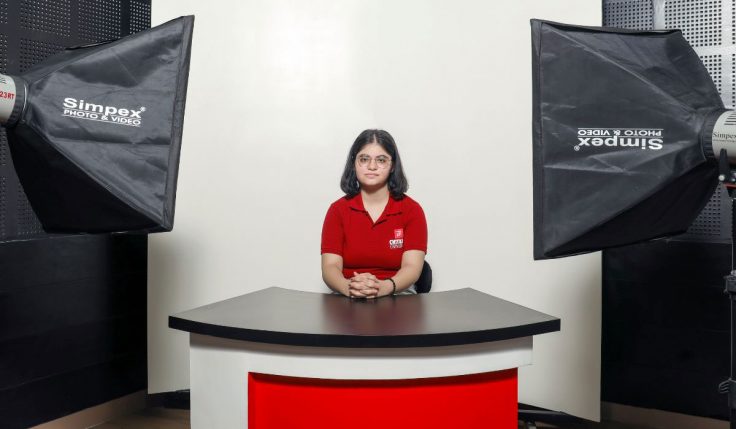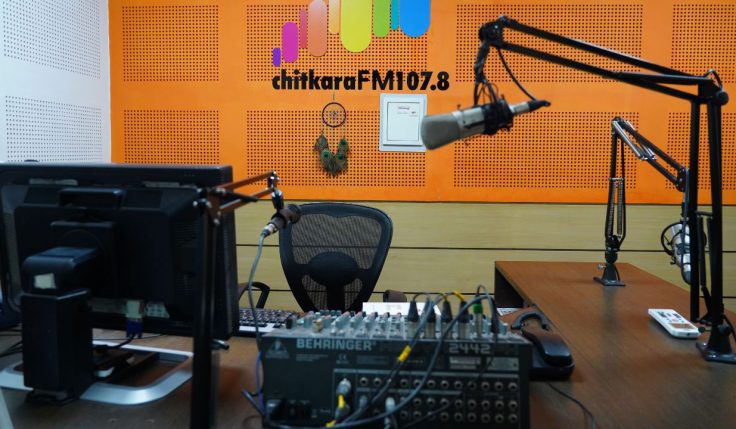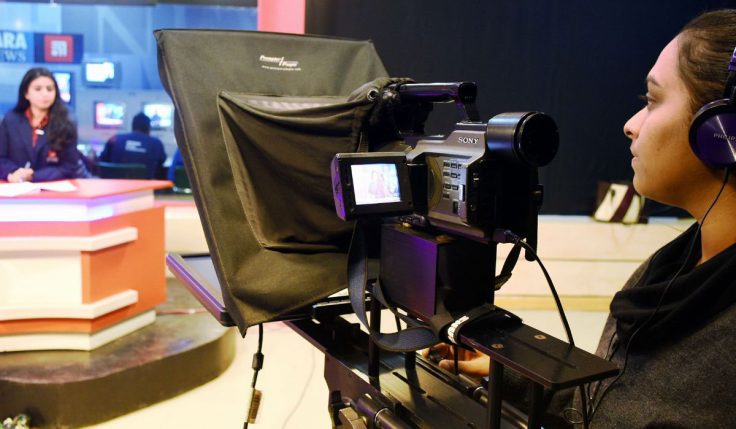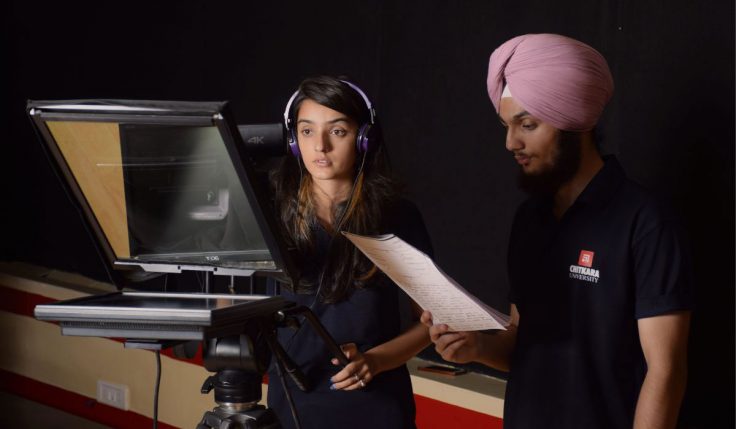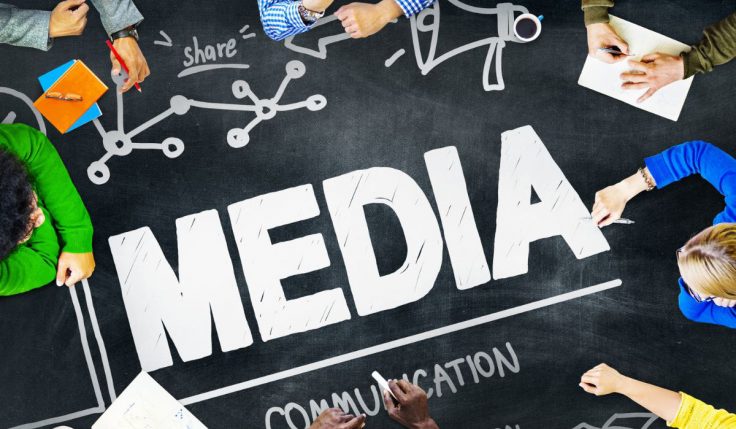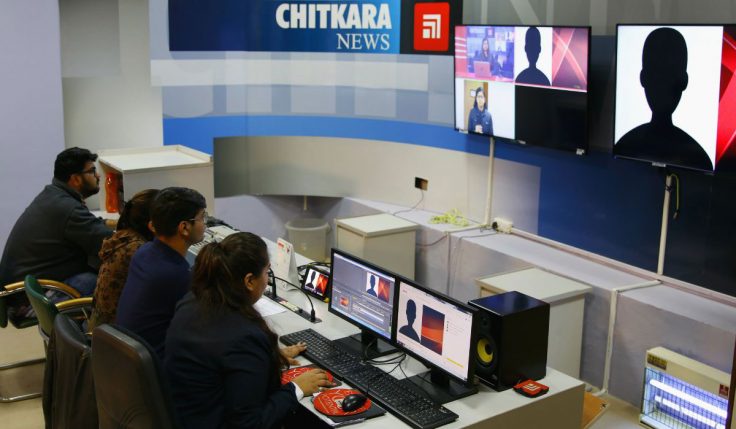Mass communication, in simple words, is the imparting or exchanging of information on a large scale to a wide range of audiences. It’s a process of creating, sending, receiving and analysing messages for a mass population. A message represents content and character, but it’s the medium that is central to the process of communication. How you choose to communicate effectively and responsibly is the key to mass impact or dissemination.
We are inhabitants of a shrinking world, hyperlinked, overwhelmed with information and slaves to an insatiable hunger for more infotainment. We are also undergoing a massive metamorphosis, battling crisis and change, wary of the very legitimacy of information communicated. For instance, the media played a huge role in COVID-19 disease tracking and information through a live update dashboard and it is the media that sensitized the people about precautions, vaccination and all health updates related to this pandemic. With the rapid and widespread reach of public health communications, timely interventions by the Centre for Disease Control and Prevention (CDC) and the World Health Organization (WHO) were possible to reach out to the masses due to active channels of mass communication like digital and social media, television, radio, broadcast, newspapers, etc. We have seen in the USA, throughout the 2016 Election, the Internet Research Agency attempted to influence the electoral outcome in favour of Donald Trump by creating a large number of social media accounts to like, share and repost positive information on Trump and negative information on Clinton. The medium of mass communication made it possible for a locked-down world to cheer for the Tokyo Olympics and Paralympics 2020 which have got a huge audience across nations.
From information dissemination, building public opinion to promoting ideas and entertainment – mass communication as an academic endeavour becomes all the more relevant in today’s times.
The Confluence of Media
Digital, print, broadcast (television and radio), film, social media, telecom-Mass communication is a confluence of multiple media, a prism of ideas and the effective use of these tools for mass engagement. Your academic adventure as a student of these brilliantly diverse subjects will expose you to the fundamental theories and principles of communication, to the process of ‘What, Who, Where, When, Why, How,’ to the immense power of the medium, its cause and effect and will help you hone your creative talents. The course trains and prepare students, give them a code of conduct, ethics to live by, teaches the importance of responsibility, technical ‘know-how’ of the media profession, an in-depth understanding of society, the law within the context of its norms, traditions and values and helps in gaining a global perspective.
The Course & Requirements
Mass communication is multi-disciplinary in nature. It can be pursued at both Bachelor’s and Master’s levels across the World. The prerequisite to undertake this course requires that you have an inclination towards print and electronic journalism, public relations, political/social justice communication, digital media, current affairs and general knowledge, language proficiency etc. It’s a field of academics for those who are hooked to world affairs, news and views, infotainment, social media, who feel this surge of creative energy, to write, speak, ideate, communicate, network, analyse, investigate and reach out to the World.
A Bachelor’s degree in Mass Communication provides fundamental and foundational training in the world of media.
The broad spectrum of subjects includes traditional and modern forms of media including print and electronic, information technology, virtual media and the internet. Subjects taught encompass Theories of Mass Communication, Mass Communication and Society, Reporting and Writing, Media Laws, Digital/ Online Media, Public Relations / Corporate Communications & Advertising, Radio and TV, Media Design, Photography, Development Communication, Traditional Media, News and Globalisation.
Students are made familiar with areas of writing, editing, ideating, investigating, video production, film and documentary making, radio production, running advertising campaigns, laws and codes governing media, the basics of public relations and advertising strategies, media information technology. They are trained as experts, strategists, analysts and potential practitioners in the world of media.
While a Bachelor’s programme introduces students to journalism, mass communication and media, a Master’s programme takes it a notch higher and makes it more specialized. Before taking up any programme, it is vital to research the options and combinations offered by Schools/ Departments of Mass Communication. For instance, if you are interested in journalism, then go for a journalism and mass communication program. If marketing and advertising appeal to you, then choose the subjects accordingly. Apart from being an impactful field of applied professional practice, media and mass communication is also a research area within academia. Scholars apply research methodologies to understand the cause and effect of media processes and practices. These findings can then be referred to for developing strategies, laws, ethics and policies. For instance, reporting of a particular community or gender in a certain colour can impact its impression on society at large, how fake news can cause worldwide panic, modes of communication that have proved effective to send messages on family planning and vaccination to rural areas etc.
As media and mass communication professionals, we can use our craft and knowledge to develop, conceptualize, and implement strategic media communication plans and practices for large audiences.
The opportunities
Opting for mass communication opens a world of possibilities that go way beyond the traditional forms of journalism, public relations advertising etc. Through its study, you stand to gain a certain competency that can be applied to any job that involves thinking, solving, analyzing, impacting. Armed with effective communication tools and strategies you can promote any message, product or programme globally. The diversity this course offers allows space for growth, flexibility and change in one’s career. A Bachelor or Master’s degree in Journalism and Mass Communication gives you the opportunity to try your creativity and acumen in:
- Film, Television & Radio
- Photo Journalism
- Digital Media
- Advertising
- Public relations/ Corporate Communications
- Management of the Media
- Teaching
- Strategic, health, political, etc.
Communication design and campaign management
Writers, editors, publicists, videographers, radio jockeys, podcasters, film directors, press secretaries, information officers, media strategists and researchers, social media managers, graphic designers, bloggers and influencers.
The world is your oyster if you manage to understand the many dimensions of mass communication.

